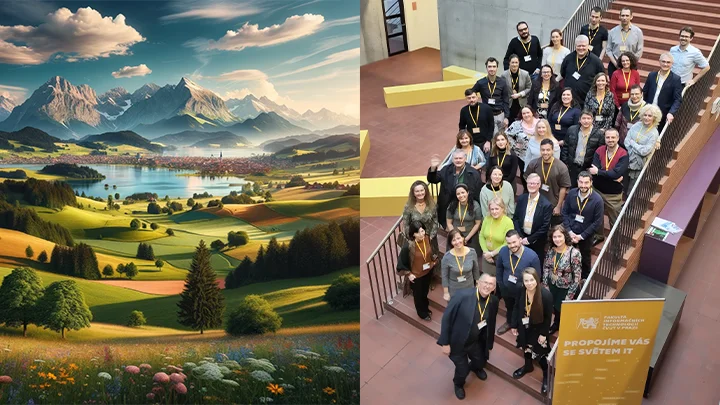
Like economy class passengers on a plane, rural regions account for most of the population, but receive the lowest level of service.
It should be noted that the picture is multi-faceted. In penance for being the target of more than their fair share of government expenditure our urban brethren and sistren are of course forced to live in cities—a hollow imitation of a full life.
That punishment would make up for some of the economic injustice, were it not that many of those who are incarcerated in cities, have fallen victim to the Stockholm syndrome, and have the tenacity to speak out in defense of their captors.
My choice of metaphors this morning owe a lot me presently being wedged into a low-cost airline seat. This seat has been carefully designed to maximize the number of souls that can be brought on board, within acceptable limits of discomfort—assuming that those souls are housed in average sized bodies. While there exists a broad range of views on my mediocrity in some domains, there is broad consensus that I'm above average size.
But... I digress:
Unlike what is the case in fiercely egalitarian Norway, the dominant attitude towards rural areas in Europe, seems to be that something is wrong with them - and that that something is that they are NOT cities.
The solution, they say, is growth; rural communities must rally around regional centers; regional centers must expand and grow and turn into towns where people can go to cafes and work remotely and have bubble tea and go to oxygen bars and eat poke bowls and succumb to the delights of adjective-rich foods with massive carbon-foot prints, sourced from every corner of the earth, and...
I could go on--and if it hadn't been for a distinctively hostile looking cabin attendant heading my way, wearing a punitive facial expression--probably would...
Now, while I admittedly may have painted myself into a corner on the rural side of the urban-rural discourse, there is little doubt that there is ample counterweight on the urban side.
As with most things, neither I nor "them" are likely to be entirely right in our subjective views; most probably the future relies on mutual understanding and bilateral recognition (and exploitation) of urban-rural linkages.
This week we've embarked on a three year journey along with 20 partners from all over Europe. Together, we've set in motion the Horizon Europe PoliRuralPlus project that is to find out how to effectively integrate urban rural linkages into rural development strategies--and how to harness current technological advances into decision support systems for rural regions.
Asplan Viak AS is leading the technical work package, and together with our excellent colleagues at the Agricultural University of Athens , the Czech Center for Science and Society, Crehan, Kusano & Associates, the Czech Technical University in Prague, Technische Hochschule Deggendorf, the National Microelectronics Applications Centre, Mallusjoen Nuorisoseura r.y., NEUROPUBLIC S.A., Poznan Supercomputing and Networking Center / Poznańskie Centrum Superkomputerowo-Sieciowe (PCSS), Fundación Social Innolabs and Ttinada, we're going bridge concurrent earth observation, vector and statistical data infrastructures, data spaces, digital platforms, harmonization pipelines, system dynamics models, AI models, and spatial information technology into decision support applications for users ranging from regional policy makers to individual farmers.
We're not going to do so from a technical starting point alone, but march in step with our colleagues who are working on analysis, foresight, and methodologies, aiming to make a tangible, positive difference for people trying to shape the future of rural regions.
It is more than likely that my dear employer, is aghast at my rural-leaning views and would prefer me to make it explicit that my satire does not reflect the official position of the company. So here goes; they do not.
This may, for that matter also be the case concerning my colleagues in PoliRuralPlus who shouldn't be held liable for my rants.
Still, I love them all—in a Platonic sort of way—and look forward to three years of singularly interesting work together.
Finally, a big thanks to Petra Ritschelova and colleagues at the Czech Technical University in Prague, Faculty of Information Technology, who most graciously hosted us, and who made the kick off meeting an undivided success. (Also thanks to those who operated behind the scenes but who were laid flat by the unjust hand of the common flue, David Pešek, you were not forgotten).
Link to the original article here.
Existing Comments